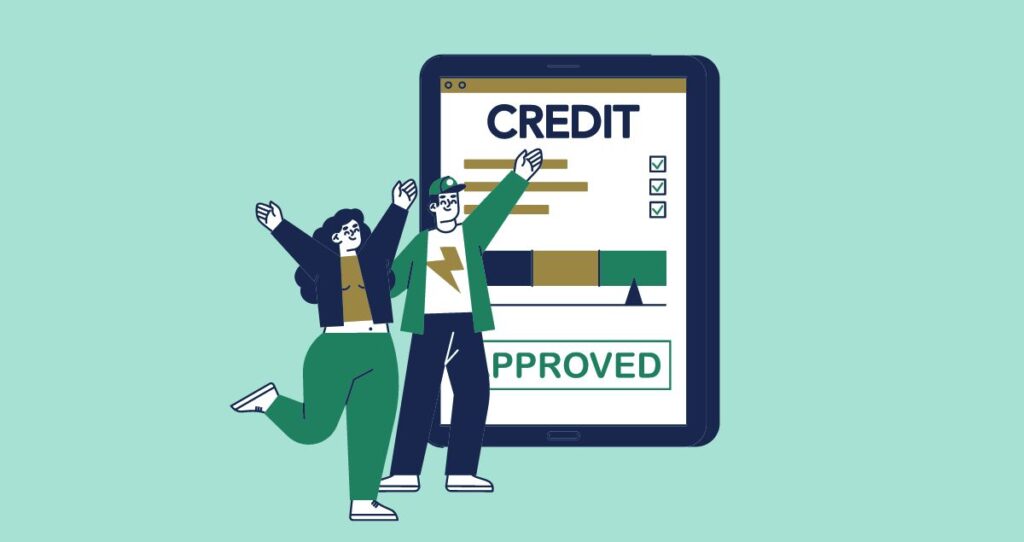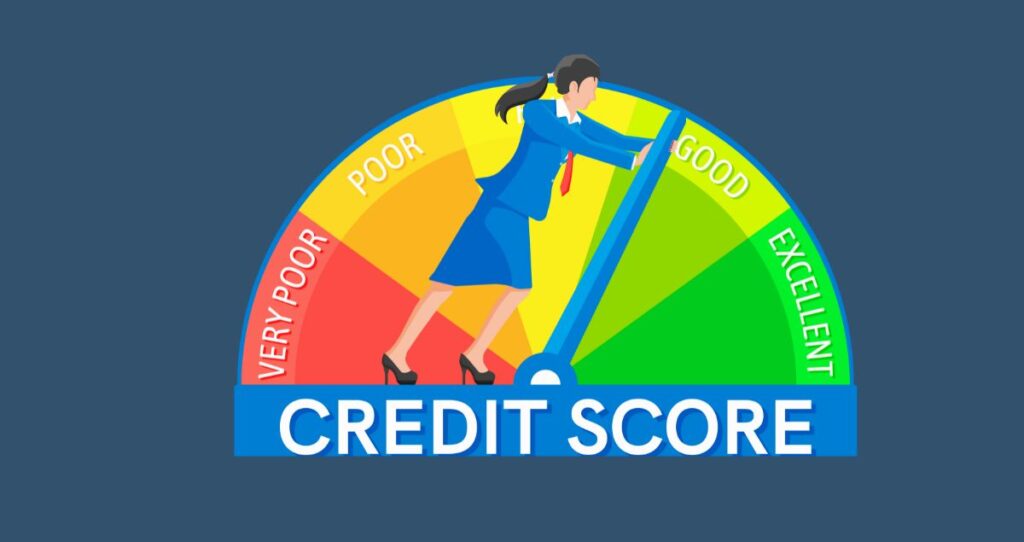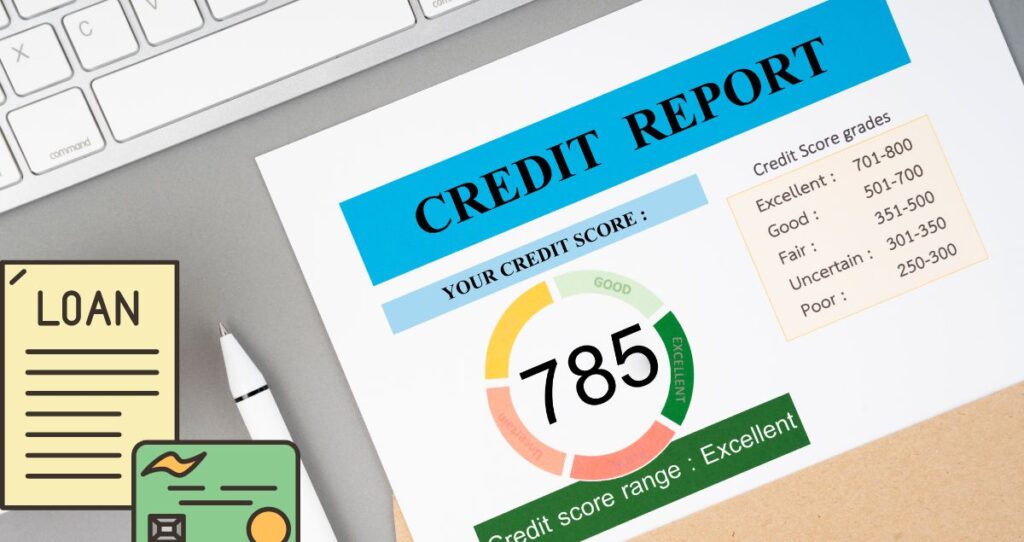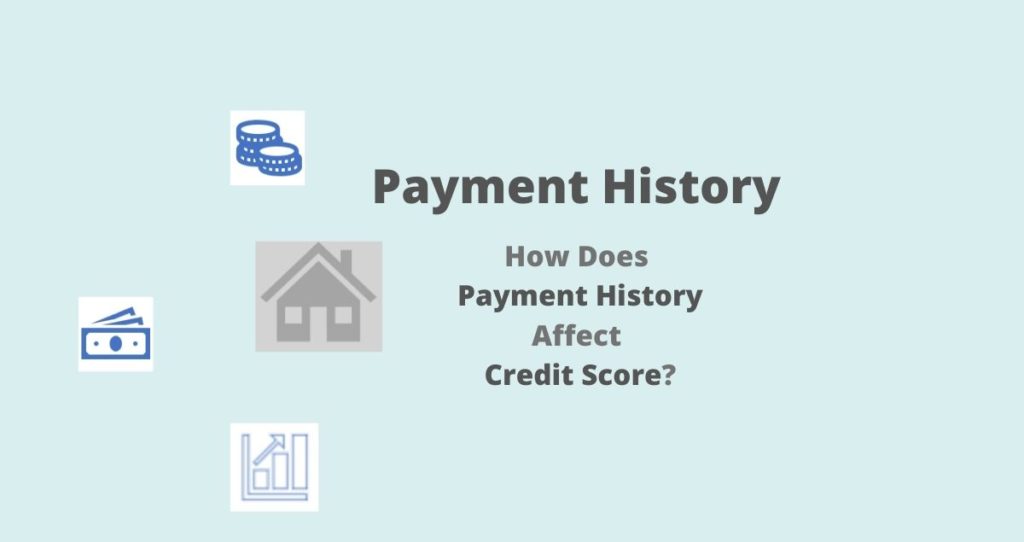The factor that has the biggest impact on credit score is payment history. This factor alone accounts for about 35% of the total FICO score and 40% of your VantageScore. Payment history reflects whether you have paid past credit accounts on time, had late payments, or failed to pay your loans.
Late or missed payments can significantly lower the credit score. A single late payment can lower your credit score by 60 to 180 points. depending on the credit score model, how late your payment was, and your credit score. On top of dropping your credit score, a late payment record will stay on your credit reports for 7 years.
How much does late payment lower your credit score?
The exact number of points by which a late payment lowers your credit score varies widely, depending on many factors such as your current credit score, how late the payment was, and how frequently you’ve made late payments. If you miss the due date but make your payment after a few days, your lender might not report the late payment to three major credit bureaus which are Equifax, TransUnion, and Experian.
Many lenders don’t report your delinquent payment as a late payment until it is 30 days past due. To know the exact number of days before a late payment is reported to major credit reporting agencies, reach out to your lender.
Generally speaking, a single late payment can potentially drop your credit score between 60 to 180 points. The longer you fall behind on your payment, the more points your credit score will drop. For example, paying a delinquent payment after 60 to 90 days past due will lower your score by more points than it would if you paid 30 days past due.
After 120 days behind, your lender will write off your payment as a loss and might also send it to a collection agency. For example, your lender can initiate a foreclosure process after you are 120 days behind on your payments. After the foreclosure is reported on your credit report, you will lose more points on your credit score.
Read more: How does late payment affect your credit score?
4 Ways to improve your payment history
If you have been falling behind on your bills, improving your payment history will be a great step to repairing your credit. Here are 4 tips to improve your payment history.
1. Avoid paying the minimum payments
Most lenders especially credit card issuers allow you to pay the minimum payment and carry the remaining balance. While this option sounds reasonable and attractive, carrying most of your balance leads to paying interest charges and you can easily accumulate debt. Carrying too much debt increases the likelihood of falling behind on your payments.
To avoid this trap, pay more than the minimum payment. Every dollar you allocate to paying off your debts allows you to get out of debt fast and take control of your finances.
2. Dispute misreported payments
If your lenders mistakenly reported a late payment to major credit bureaus, dispute this information as soon as possible. You can dispute late payments to credit bureaus, the lender who reported the payment, or both. All you have to do is write a dispute letter and send it to everyone involved.
You also need to include all details and proof of on-time payment such as a receipt or email notification you received after making the payment. Here is a guide to disputing errors and inaccuracies to major credit reporting agencies.
After disputing the error, you will receive a response within 30 days indicating how the agency will handle the issue. If you have submitted all proof of payment, the misreported payment history will be removed from your credit reports. Your lender will also stop reporting errors to major credit agencies which will improve your payment history and increase your credit score.
3. Start paying on time
Having a late payment on credit reports is not good for your payment history and credit score in general. Repeated late payments, however, are much worse as they establish a pattern of bad financial habits. The only way to have a strong payment history is to pay your bills on time every month. If you have been falling behind on your payments, start paying all your bills on time. Even if you have to get a second job, please, do so to improve your payment history.
4. Do not mail your payment
Many people fail to pay their bills on time due to using the old fishing mailing system. While this option has been working fine for many years, you might need to start paying your bill online to improve your payment history. Not only that paying your bills online is convenient, but it is also efficient in terms of payment processing and tracking your payments.
Read more: How to avoid late payments on your credit report
What is the second factor that has the biggest impact on credit score?
Besides payment history, the second factor that has the biggest impact on credit score is credit utilization. The credit utilization accounts for 30% of your FICO score and 20% of VantageScore. Credit utilization refers to how much you owe on revolving credit accounts such as credit cards compared to your total credit limit. For example, if you have 2 credit cards with a total credit limit of $4,000 and you spent $2,000, your credit utilization is 50%.
Credit utilization reflects how much you rely on debt to finance your lifestyle. A high credit utilization shows that you rely heavily on debt to pay for your expenses which is a sign of financial hardship or lack of financial responsibility.
Most lending institutions prefer consumers with a credit utilization under 30%. To boost your credit score, keep your credit utilization under 7%. Carrying a low balance prevents you from paying too much interest on your credit accounts.
What are other factors that have a high impact on credit score?
While your payment history and credit utilization are the two factors with the biggest impact on your credit score, they are not the only factors that affect your credit score. Other factors that impact your credit score include the age of your credit, hard inquiries, credit mix, and derogatory marks.
Here is how much impact these factors have on your credit score.
- Age of your credit. Your credit age shows how long you have been using credit. The longer the age of your credit, the better. Most people with an 800+ credit score have a 10-year credit history. The age of your credit accounts for 15% of your credit score.
- Credit mix. Your credit mix is another factor that impacts your credit score and it accounts for 10% of your credit score. Credit mix reflects the different types of credit accounts you have. A good credit mix has revolving credit such as credit cards, personal and business lines of credit, home equity lines of credit(HELOCs), and installment loans such as car loans, student loans, and mortgages.
- Hard inquires. Hard inquiries appear on your credit report when you apply for credit and they account for 10% of your credit score. Each hard inquiry drops your credit score by 5 to 6 points on average.
- Derogatory marks. Also known as negative items, derogatory marks have a high impact on your credit score and they are linked to your inability to pay off your debts. Derogatory marks include but are not limited to charge-offs, collections, foreclosure, and bankruptcy. Derogatory marks stay on your credit report for 7 to 10 years and they can drop your credit score by 60 to 200 points.
Read more: 6 factors that affect your credit score
How can you avoid late payments?
Since payment history is the number one factor that has the biggest impact on credit score, paying your bills on time is essential in maintaining a healthy credit.
Here are tips to avoid late payments and increase your credit score.
Sign up for monthly payment reminders
Most credit card issuers and lenders have an option where you can sign up for reminders before the due date. Depending on your institution, you can receive an email or a text notification on your phone.
Set up auto-pay
To avoid falling behind on your payments, set up auto pay and have the money taken out of the account several days before the due date. This will allow you to confirm that your payment was successful ahead of time. If the payment does not go through, you will have enough time to correct the mistake before the due date.
Request a pause in payment when you don’t have the cash
If you are facing emergencies or don’t have the cash, it is best to talk to your lender and request a pause in payment rather than simply getting fined with a late payment. For example, you can offer to make two payments for the following months or when you can afford to do so. Your lender is not obligated to make this arrangement but it does not hurt to ask.
Pay your bills electronically instead of using the mail
I usually don’t trust the mailing systems to make my payments. Anything can happen and it takes longer for your payment to be delivered. For example, if the driver gets into an accident, your payment can easily get lost or misplaced. If this happens, you will miss a payment unintentionally and the lender will not forgive you simply because the mail was lost. At the end of the day, it is your responsibility to make sure your bills are paid on time.
To avoid this issue and ensure your bills are paid on time, pay your bills online. This way you can know if the payment was successful right away. If the payment did not go through, you can correct the mistake right and avoid the risk of missing a payment.
Why does your payment history have the biggest impact on your credit score?
Your payment history has the biggest impact on your credit score because it is a direct reflection of your financial behavior and habits. It shows lenders how reliable you are when it comes to repaying your debts on time. If you consistently pay your bills late or miss payments altogether, that reflects poorly on your ability to manage and repay debt, thereby decreasing your credit score.
On the other hand, maintaining a consistent track record of timely payments indicates to lenders that you are responsible and trustworthy, which significantly boosts your credit score.
Can a lender waive a late payment fee?
Yes, you can have a late payment fee waived on some of your credit accounts. Credit card issuers in particular might waive a late payment fee especially when it is your first one and have been paying on time for at least the previous six months. It all depends on the relationship you have with your lender and payment habits. Again, your lender is not required to waive a late payment, and the terms of your loans vary from one lender to another.
More credit score tips
How to Raise Your Credit Score in 30 Days?
6 factors that affect your credit score









